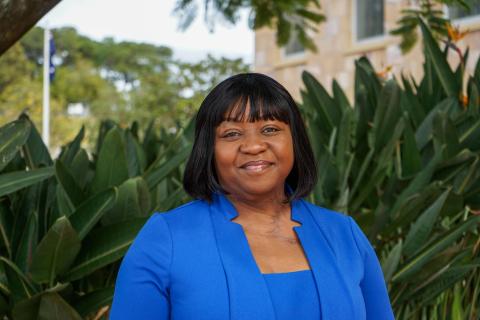The new generation of researchers
This session introduced the newest generation of researchers in the Faculty of Society and Design, covering a range of disciplines researched in the faculty including the humanities and built environment.
The presenters each spoke for 30 minutes with 10 minutes for Q&A.
Dr. Oscar Davis – Indigenous Fellow
Intercultural Aporia: The Motu Lifeworld as Hermeneutic
Hermeneutics as a theoretical orientation emerged as a way to interpret texts (such as those from classical antiquity) without relying on the unquestioned authority of some meditating tradition (such as the ecclesiastical traditions of the Latin Middle Ages). Hermeneutics is a discipline of interpretation which is particularly attuned to questions of understanding in situations involving difference. Engaging with the ways of being, doing, and knowing in the southern coast of Papua New Guinea, I will argue, rehearses and illustrates this feature of hermeneutical philosophy. Drawing upon Gadamer’s conception of a Fusion of Horizons, I argue that the interpreter must experience a kind of intercultural aporia in order to establish the openness necessary for meaningful dialogue with new and other ways of knowing.

Dr. Valentah Siamuzwe-Manase
An Assessment of the Housing Investment Needs in Australia – A Case Study of Queensland
The housing crisis in Australia is well known and documented by various stakeholders. Driven by an exponential population growth and a shortage of affordable housing in locations near jobs and facilities, its impact is more adverse on the young and the low-income groups. Numerous stakeholders with variant and sometime conflicting priorities from both public and private sectors are impacted by and influence the factors prevalent in this sector. Therefore, the housing crisis needs to be understood and addressed from a holistic and multidisciplinary perspective that takes into account the various dimensions and stakeholders involved.
This research seeks to analyse the causal factors to the housing crisis with the aim developing insights into the multi-faceted investment approaches that can address the housing crisis. These findings will shape and develop an investment framework that will help define and project the current and future housing needs and, consequently the investment needs from both public and private stakeholders. The research will draw on the lessons learnt from other developed economies where similar challenges have been faced and addressed.
The study will focus on Queensland as a case study because it has experienced an exponential population growth post-Covid and is particularly impacted by the housing crisis.
Attendees discovered the extraordinary range and power of the research done by new appointees to the Faculty of Society and Design.